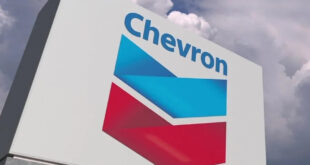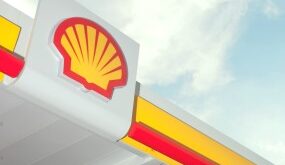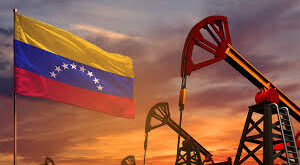Iran’s LPG exports are set to stay near two-year peaks of around 500,000 mt in July and August, meeting China’s voracious appetite for cheaper petrochemical feedstock given the increase in the number of its propane dehydrogenation plants, trade sources said.
The high volumes, which some sources estimate could exceed 500,000 mt, are expected to last through the end of 2021, driven by the increase in Iran’s LPG production and demand, sources said. Initial hopes of easing sanctions after Joe Biden became the US president have dimmed as negotiations have stalled somewhat following the election of conservative President Ebrahim Raisi in Iran.
A Chinese source said more Iranian LPG was shipped into China this year, which could be due to the grade’s competitive price.
Iranian cargoes were heard sold at discounts deeper than $20/mt versus other Middle Eastern cargoes, which attracted buying interest, the source said. Others said the discounts were as steep as $30/mt. The previous round of Western sanctions in 2012 saw Chinese buyers buying Iranian cargoes at hefty $40-$50/mt discounts.
According to data intelligence company Kpler, China was the largest buyer of Iranian LPG in June at 464,000 mt, or 95% of its total exports, with small amounts shipped to Pakistan and Bangladesh.
A trade source said the three countries are the only lifters of Iranian LPG.
Slow progress in nuclear talks
Progress on the talks aimed at reviving the 2015 Joint Comprehensive Plan of Action and the lifting of sanctions on Iranian oil was complicated. Platts reported on Aug. 13 that the US Treasury Department leveled new sanctions against an Omani oil trader and a Liberian-flagged crude tanker accused of facilitating Iranian oil exports.
“It is a bit difficult to advise the exact exported quantity (of LPG), as some quantities are kept on some vessels used as floating storage and transshipments for a while in the UAE, Oman and Straits; and small shipments, which is exported to nearby countries,” a trade source said.
“It is fluctuating between 450,000-530,000 mt/month. Hopefully with the new US government, the imposed limitation might be eased and (Iran) can increase the export volume by the coming of more vessels on the Iran route.”
Iran’s LPG exports come from mainly from two sectors — petrochemical plants and gas refineries.
LPG from petrochemical plants is produced by Bandar Imam Petrochemical Co. in Khuzestan province, which produces 1 million mt/year of LPG; Petrochemical Commercial Co. in Assaluyeh, which produces 1.5 million mt/year, and Kharg Petrochemical Co, which produces 200,000 mt/year.
Gas refineries, mainly located in South Pars phases/Assaluyeh, have export quantities of about 3 million mt.
Production from gas refineries could be much higher if not for the current political situation, which limited the number of vessels that can be used for export, the source added.
According to the trade source, the easing of sanctions will not move fast. “And I believe it will take a minimum of six to eight months, optimistically.”
Industry sources had said, assuming the US completely removes sanctions, Iran could export at least 3.73 million mt/year of LPG and 33 vessels will be needed for transportation.
Before these limitations, Iran’s monthly LPG exports peaked at around 568,000 mt in August 2018, driving shipments in that year to 5.2 million mt, shipping and trade data showed, the highest since the previous western sanctions to its nuclear program were lifted in January 2016.
In one month, peak export volumes can reach 13 Very Large Gas Carriers, sources said.
China imported 4.94 million mt of Iranian LPG in 2019, 3.85 million mt in 2020, and 1.965 million mt over January to May 2021, industry data showed. Sources said Iranian exports to China are via ship-to-ship operations and are not reflected in official data.
In 2018, term customers of Iranian LPG had included Indonesia and Taiwan, either directly, or via trading firms, sources said.
Between 2018 and 2020, Iran added 3.2 million mt of LPG production capacity mainly from the South Pars gas field and by this September, another 2.2 million mt of production capacity is expected to come online, sources said.
Chinese LPG demand is rising due to the start up of new propane dehydrogenation plants. Fujian Meide and Oriental Energy’s Ningbo facility started up new plants in H1 2021, while Shandong Huifeng Haiyi Petrochemical’s plant is in the pipeline. These facilities would add 1.58 million mt/year of propane processing capacity.
Jinneng Science and Technology is due to start up a PDH plant with propane processing capacity of 1.08 million mt/year at Qingdao in Shandong province in the near term, while Henan Nanpu Technology is scheduled to start a PDH plant by year-end that will require almost 200,000 mt/year of propane feedstock at full capacity, market sources said.
Currently, China has 12 PDH plants with a combined propylene production capacity of 7.97 million mt, using up to 9.56 million mt/year of feedstock propane, Platts’ calculations showed.

 Iran Energy News Oil, Gas, Petrochemical and Energy Field Specialized Channel
Iran Energy News Oil, Gas, Petrochemical and Energy Field Specialized Channel



